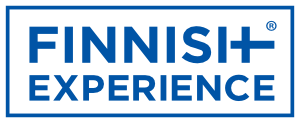Assessment and Grading in Finnish Schools: A Different Perspective
Uncover the unique approach of Finnish schools towards assessment and grading, emphasizing holistic development and individual growth over traditional grading systems.
The Finnish Education System: A Brief Overview
The Finnish education system is known worldwide for its exceptional quality and innovative approach. It places a strong emphasis on holistic development and individual growth, prioritizing the overall learning experience over traditional grading systems. Finnish schools aim to create a supportive and inclusive environment where students can thrive academically, emotionally, and socially.
One key aspect of the Finnish education system is its commitment to equal opportunities for all students. The Finnish government ensures that every child has access to high-quality education, regardless of their socio-economic background. This commitment is reflected in the comprehensive support and resources provided to schools, enabling them to meet the diverse needs of their students.
In Finnish schools, the focus is not solely on academic achievement but also on fostering essential life skills, such as problem-solving, critical thinking, and collaboration. This approach prepares students for real-world challenges and equips them with the tools they need to succeed in various aspects of life.
Holistic Development and Individual Growth in Finnish Schools
Finnish schools prioritize holistic development and individual growth over the traditional emphasis on grades. They recognize that each student is unique and has their own strengths and areas for improvement. Instead of solely focusing on academic performance, Finnish schools aim to nurture the overall development of each student, including their physical, emotional, and social well-being.
The curriculum in Finnish schools is designed to provide a well-rounded education that encompasses various subjects, including arts, sports, and vocational skills. This approach ensures that students have the opportunity to explore and develop their interests and talents beyond just academic subjects.
Moreover, Finnish schools promote a positive and inclusive learning environment where students are encouraged to express themselves, ask questions, and engage in meaningful discussions. Teachers play a crucial role in supporting students' holistic development by providing guidance, mentorship, and individualized attention.
Assessment for Learning and Active Student Participation
Assessment for learning is a fundamental principle in Finnish schools, focusing on the active participation of students in their own learning process. Instead of relying solely on exams and grades, Finnish schools employ various assessment methods to evaluate students' progress and provide meaningful feedback.
One of the key assessment methods used in Finnish schools is continuous assessment, which involves assessing students' skills and knowledge throughout the learning process. This allows teachers to identify areas where students may need additional support and tailor their teaching accordingly.
In addition, Finnish schools prioritize active student participation in the assessment process. Students are encouraged to reflect on their own learning, set goals, and monitor their progress. This self-assessment helps students become more aware of their strengths and areas for improvement, fostering a sense of ownership and responsibility for their learning journey.
Qualitative Feedback and Formative Assessment
Qualitative feedback is highly valued in Finnish schools as it provides students with specific and constructive input to guide their learning. Instead of relying solely on numerical grades, teachers provide detailed feedback that highlights students' strengths and areas for improvement. This feedback helps students understand their progress and take necessary steps to enhance their learning.
Formative assessment is another essential component of the Finnish education system. It involves ongoing assessment and feedback throughout the learning process, allowing teachers to adjust their instruction and support students' individual needs. Formative assessment focuses on the growth and development of students rather than simply measuring their performance at a given point in time.
By emphasizing qualitative feedback and formative assessment, Finnish schools create a supportive learning environment where students feel motivated to learn and improve. This approach promotes a growth mindset and encourages students to view challenges as opportunities for growth and development.
Empowering Students: Self and Peer Assessment Methods
Finnish schools empower students by involving them in the assessment process through self and peer assessment methods. Self-assessment encourages students to reflect on their own learning, set goals, and evaluate their progress. This process helps students develop metacognitive skills and become more independent learners.
Peer assessment is another valuable method used in Finnish schools, where students provide feedback and evaluate their classmates' work. This not only promotes a sense of collaboration and teamwork but also enhances students' critical thinking and communication skills.
Both self and peer assessment methods foster a sense of agency and responsibility among students, as they actively engage in evaluating their own and others' work. This approach promotes a supportive learning community where students learn from each other and take ownership of their learning journey.
